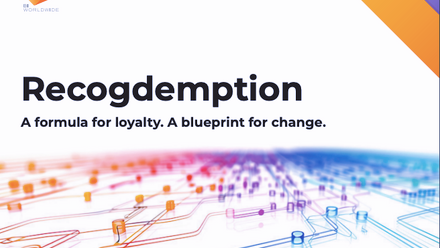5 actions reward professionals must take to ensure reward is open and objective

Although reward professionals don’t tend to influence the salaries of workers, they do have an important role to play. After all, salary is just one element of an employee’s overall package. It’s just as crucial for recognition and rewards to be managed transparently and kept fair regardless of gender as well as disabilities, race, sexual orientation and background. Here are five key ways to achieve openness and objectivity:
- Ensure recognition and reward is open to all - This may seem obvious but some companies still view certain departments/job roles as being more worthy of recognition and reward than others. Ensure that everyone – from the cleaner to the CEO – can give and receive recognition and don’t forget about temporary and remote workers. As part of this, all employees must have quick and easy access to recognition programs and tools that don’t take them away from their flow of work. After all, if giving recognition is a chore, few will bother.
- Train staff on how to keep reward and recognition fair – It’s only human to like some people more than others, however when it comes to reward and recognition, favouritism must be avoided. As part of this, train managers and ‘reward champions’ from across the business on how to be equal and fair when appreciating and rewarding staff, and give guidance to ensure gender biases don’t creep in.
- Do gender monitoring – Your recognition and reward software can provide valuable insights into who is being recognised and rewarded and how often. So regularly review your data to see whether there are any disparities according to gender.
- Analyse the data - Drill down into the reward data to determine the possible causes of any gender differences. Perhaps a certain manager is giving out recognition and reward to one gender more than another and if so, why is this? It could be as simple as him/her having more males or females on their team. By finding the disparities and asking the right questions, any potential gender biases can be quickly identified and addressed.
- Remain transparent – It’s important for staff to see that any differences in how the genders are treated is being taken seriously so that engagement and motivation levels aren’t impacted. Consider regular reporting on the company’s recognition and reward programme, providing a range of details, including the number of people that have been rewarded, the department they’re from and their genders. Any anomalies that are identified can then be explained and, if possible, justified. The steps being taken to ensure fairness and equality must also be communicated to staff and regular updates provided.
With the first round of gender pay gap figures showing that eight in 10 UK firms pay men more than women, it’s important for organisations to take any disparities seriously. They must also look beyond the pay gap so that gender differences across all aspects of the company are addressed. With recognition and reward key to an employee’s self-worth, reward professionals must recognise the important part they play in tackling any differences, helping to influence change for the benefit of all.
This article is provide by O.C.Tanner.
Supplied by REBA Associate Member, O. C. Tanner
Giving teams the integrated tools they need when, where and how they need them.







